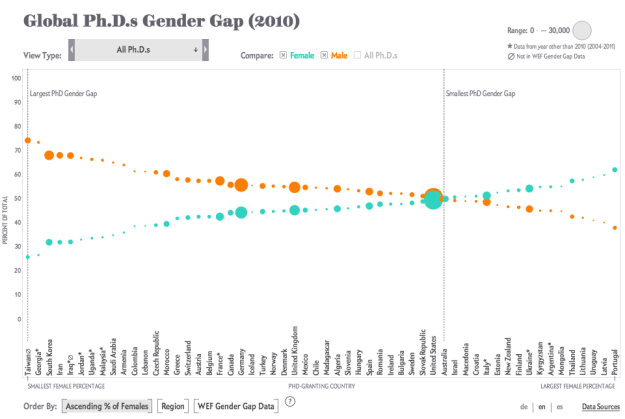Niklas Elmqvist provides a detailed guide for finding and a visualization PhD program:
Unless you have a specific reason to choose a specific university (such as a geographic one; maybe you can’t relocate), don’t start from the university you want to go to, but start with the faculty member you want to work with. This is where all that idle web surfing experience can come in useful: you need to become an expert in finding faculty members that have research interests that match your own, and the only way to do so is to trawl their websites and read their papers.
And then applying:
Now, having identified some possible advisors (and don’t just pick one; you never know whether you will be admitted and whether they have funding to hire new students), you should reach out to them. In other words, don’t just apply, but send them an email with plenty of time to spare before the application deadline. Attach your CV, outline your background, and provide some of the above-mentioned commentary on their work and why you are interested in it (i.e., the “hook”). If you have a portfolio or website, link to it. Remember, no form letters!
Useful information here. You might also want to get a sense of flexibility in the department. I was two years into my PhD in statistics until I decided I wanted to go the visualization direction, which was a big switch from my original intentions of statistics education. Focus and interests tend to shift after you learn more.
Once you get into a program, see also my survival guide for avoiding burnout and finishing.
 For good ideas and true innovation, you need human interaction, conflict, argument, debate. ——Margaret Heffernan Conflicts in research groups are common. Even in a small lab with no more than 10 people, conflicts
For good ideas and true innovation, you need human interaction, conflict, argument, debate. ——Margaret Heffernan Conflicts in research groups are common. Even in a small lab with no more than 10 people, conflicts 






